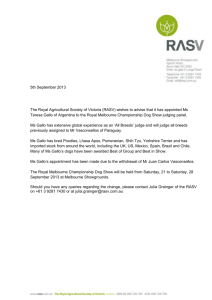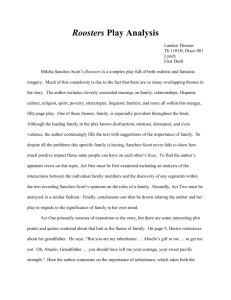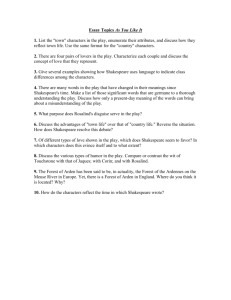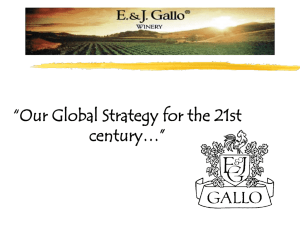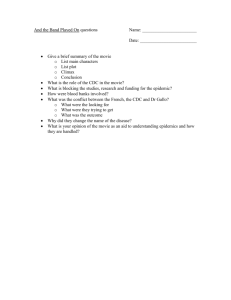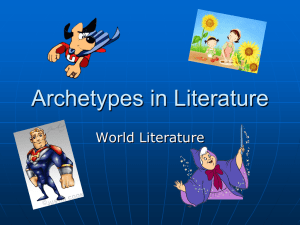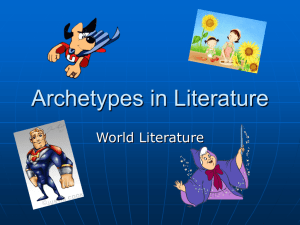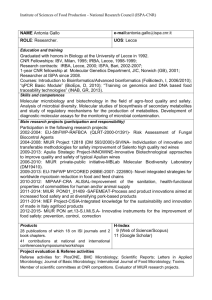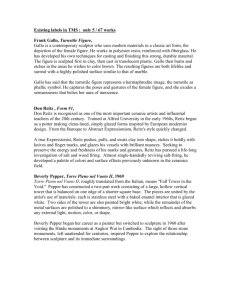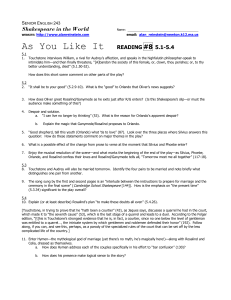Paul Zajac
advertisement
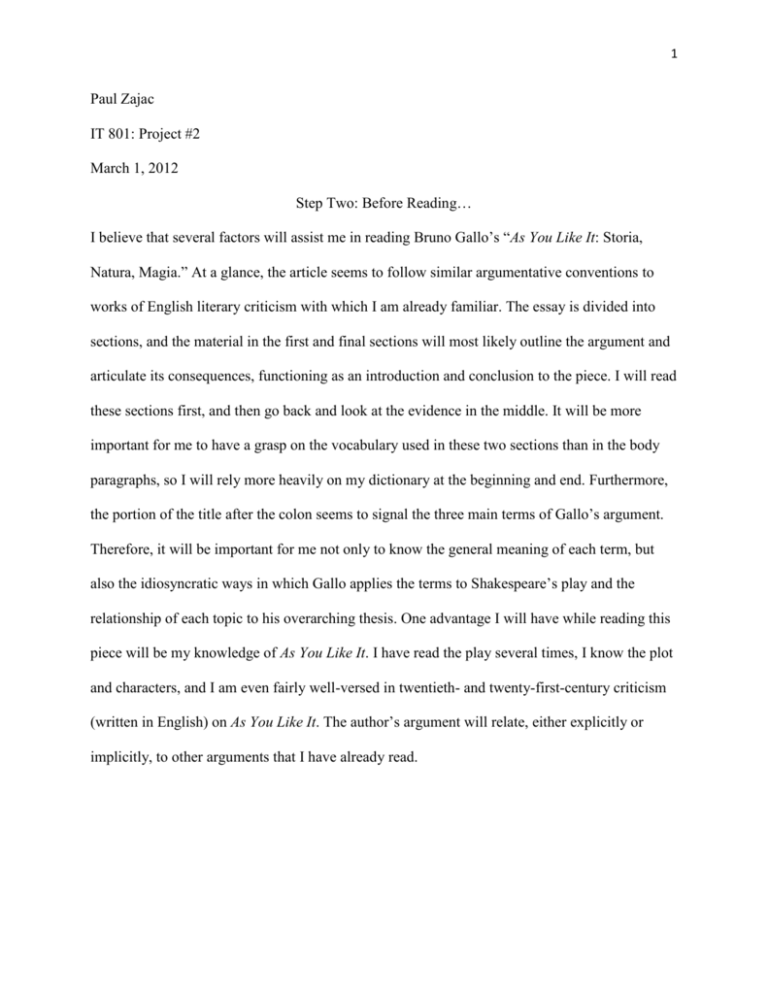
1 Paul Zajac IT 801: Project #2 March 1, 2012 Step Two: Before Reading… I believe that several factors will assist me in reading Bruno Gallo’s “As You Like It: Storia, Natura, Magia.” At a glance, the article seems to follow similar argumentative conventions to works of English literary criticism with which I am already familiar. The essay is divided into sections, and the material in the first and final sections will most likely outline the argument and articulate its consequences, functioning as an introduction and conclusion to the piece. I will read these sections first, and then go back and look at the evidence in the middle. It will be more important for me to have a grasp on the vocabulary used in these two sections than in the body paragraphs, so I will rely more heavily on my dictionary at the beginning and end. Furthermore, the portion of the title after the colon seems to signal the three main terms of Gallo’s argument. Therefore, it will be important for me not only to know the general meaning of each term, but also the idiosyncratic ways in which Gallo applies the terms to Shakespeare’s play and the relationship of each topic to his overarching thesis. One advantage I will have while reading this piece will be my knowledge of As You Like It. I have read the play several times, I know the plot and characters, and I am even fairly well-versed in twentieth- and twenty-first-century criticism (written in English) on As You Like It. The author’s argument will relate, either explicitly or implicitly, to other arguments that I have already read. 2 Summary Although he includes the word “magic” in the title of his article, Bruno Gallo focuses primarily on the relationship between history and nature in Shakespeare’s As You Like It. Gallo begins by categorizing the play as a pastoral drama in order to then explain how it transcends the conventions of that genre; in particular, As You Like It has much in common with Shakespeare’s histories and tragedies written around the same time. Gallo reads the play as an investigation of human life shaped by historical circumstances—circumstances which, in the late Elizabethan period, included tremendous political uncertainty and social change. The socio-political significance of the play is developed, in part, through allusions to the biblical Eden, which would be a paradise free from sin and the ensuing strife of historical time. However, Shakespeare’s refusal to simply equate the Forest of Arden with the Garden of Eden reveals that the ideal of “love order” is complicated by a multiplicity of perspectives and attitudes. The play explores the dialectic of history and nature that characterizes human life. In the first body section, Gallo outlines the overwhelmingly negative depiction of human history throughout most of the play; history is a cycle of exploitation, usurpation, and conquest. Oliver’s garden (the opening setting of the play) functions as a microcosm for society, where man is reduced to either animal passivity or fratricidal violence until he ultimately comes to resemble the prodigal son more than the pre-lapsarian Adam. Synonymous with man’s estrangement from nature, history (at its worst) is a closed system that does not admit rebellion, challenge, or difference. Gallo’s short second section concerns the act of moving away from the closed, totalizing system of history (represented by Duke Frederick’s court and Oliver’s garden—a parody of Eden) and returning to nature. Orlando and Rosalind are able to upset the structures of history 3 because they act as vehicles of nature, and Orlando’s relationship with his deceased father, in particular, parallels the relationship between the individual man and human nature. Orlando’s journey into the forest of Arden with his servant Adam symbolizes a return to the father and a recognition of human nature, as well as a religious conversion or metanoia. Although Shakespeare juxtaposes the open system of Arden with the negative depiction of the Duke’s court, the playwright does not necessarily idealize Arden as some sort of pastoral, golden world. Instead, nature here represents life in all of its complexity and ambiguity. The different forms of love portrayed in the play are metaphors for the many different ways to view life and interpret nature. Gallo proceeds to outline the perspectives of several characters toward human existence, and he contrasts the idealistic leaning of Duke Senior with the hypercritical and hypocritical Jacques. Although Jacques falls short of the ideal critic, Shakespeare nevertheless upholds the value of criticism, traced by Gallo in the actions and dialogue of Rosalind, Celia, and the fool Touchstone. Rosalind’s “Ganymede” disguise becomes an outward representation of her two roles in the play; more specifically, Ganymede emerges as Rosalind’s own antagonist or critical consciousness, which enables her to undergo a form of conversion by the drama’s end. In the final section, Gallo argues that the final scenes of the play consist of linguistic “magic circles,” but the representation of this magic is ambivalent. Gallo concludes by suggesting that the real magic of the play, however, is that it imagines a historical realization of Eden within nature itself. This vision is not the result of utopian idealization, social engineering, or divine intervention, but an ontological multiplicity in which the penalty of Adam is recognized to be as much an inherited part of the human experience as it is a burden. 4 Step Five: After Reading… One of the biggest difficulties that I faced in this assignment involved unknown Italian vocabulary. I looked up a lot of words within the introduction of the document in order to have a firm grasp on the essay’s argumentative framework before continuing with the body sections. In order to prevent moving at a depressingly plodding place, I limited myself to looking up only a few words per page in subsequent sections, so I ended up needing to read those sections several times to make sure I understood the general argument. I assumed that the brief final section would reiterate some of the main ideas of the previews sections, but it felt more tacked-on than anything else, and it added little to my understanding of the argument or its significance. I also had to keep reminding myself that the syntax in Italian did not necessarily follow English rules, as the subject of many sentences actually occurred after the verb. However, the greatest obstacle when reading this article was my own sense of intimidation when approached with so much unfamiliar text.
